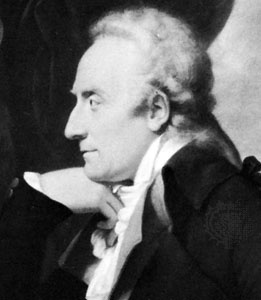Alfieri, Vittorio, Conte
Italian author
born January 16, 1749, Asti, Piedmont
died October 8, 1803, Florence
 Italian tragic poet whose predominant theme was the overthrow of tyranny. In his tragedies, he hoped to provide Italy with dramas comparable to those of other European nations. Through his lyrics and dramas he helped to revive the national spirit of Italy and so earned the title of precursor of the Risorgimento.
Italian tragic poet whose predominant theme was the overthrow of tyranny. In his tragedies, he hoped to provide Italy with dramas comparable to those of other European nations. Through his lyrics and dramas he helped to revive the national spirit of Italy and so earned the title of precursor of the Risorgimento.Educated at the Military Academy of Turin, Alfieri became an ensign. A distaste for military life led him to obtain leave to travel through most of Europe. In England he found the political liberty that became his ideal, and in France the literature that influenced him most profoundly. He studied Voltaire, J.-J. Rousseau, and, above all, Montesquieu.
Alfieri settled in Turin in 1772 and resigned his commission the following year. To divert himself, he wrote Cleopatra, a tragedy performed with great success in 1775. Thereupon Alfieri decided to devote himself to literature. He began a methodical study of the classics and of the Italian poets, and since he expressed himself mainly in French, the language of the ruling classes in Turin, he went to Tuscany to familiarize himself with pure Italian.
By 1782 he had written 14 tragedies as well as many poems (including four odes in the series L'America libera, on American independence, to which a fifth ode was added in 1783) and a political treatise on tyranny, in prose, Della tirannide (1777). He also hailed the fall of the Bastille with an ode, “Parigi sbastigliata” (1789). Ten of the tragedies were printed at Siena in 1783.
Meanwhile, in Florence in 1777, Alfieri had met the Countess of Albany, wife of the Stuart pretender to the English throne, Charles Edward. He remained deeply attached to her for the rest of his life.
Alfieri's genius was essentially dramatic. His rough, forthright, and concise style was chosen deliberately, so that he could persuade the oppressed and the resigned to accept his political ideas and inspire them to heroic deeds. Nearly always, Alfieri's tragedies present the struggle between a champion of liberty and a tyrant.
Of the 19 tragedies that he approved for publication in the Paris edition of 1787–89, the best are Filippo, in which Philip II of Spain is presented as the tyrant; Antigone; Oreste; and, above all, Mirra and Saul. Saul, his masterpiece, is often considered the most powerful drama in the Italian theatre.
Alfieri's autobiography, published posthumously as Vita di Vittorio Alfieri scritta da esso (1804; The Life of Vittorio Alfieri Written by Himself), is his chief work in prose. He also wrote sonnets, comedies, satires, and epigrams.
- Chandra X-ray Observatory
- Chandrayaan-1
- Chandrika Bandaranaike Kumaratunga
- Chanel, Coco
- Chaney, Lon
- Changamire Dynasty
- Chang'an
- Chang and Eng
- Changbai Mountains
- Ch'ang-ch'un
- Changchun
- Changde
- Chang-Díaz, Franklin
- Chang'e 1
- Change in Share Price of Selected U.S. Blue-Chip Stocks
- Change in Share Price of Selected U.S. Blue-Chip Stocks 1
- Change in Share Price of Selected U.S. Blue-Chip Stocks 2
- changeling
- change ringing
- Changes in Consumer Prices in Less-Developed Countries
- Changes in Consumer Prices in Less-Developed Countries 1
- Changes in Consumer Prices in Less-Developed Countries 2
- Changes in Consumer Prices in Less-Developed Countries 3
- Changes in Consumer Prices in Less-Developed Countries 4
- Changes in Consumer Prices in Less Developed Countries, Table